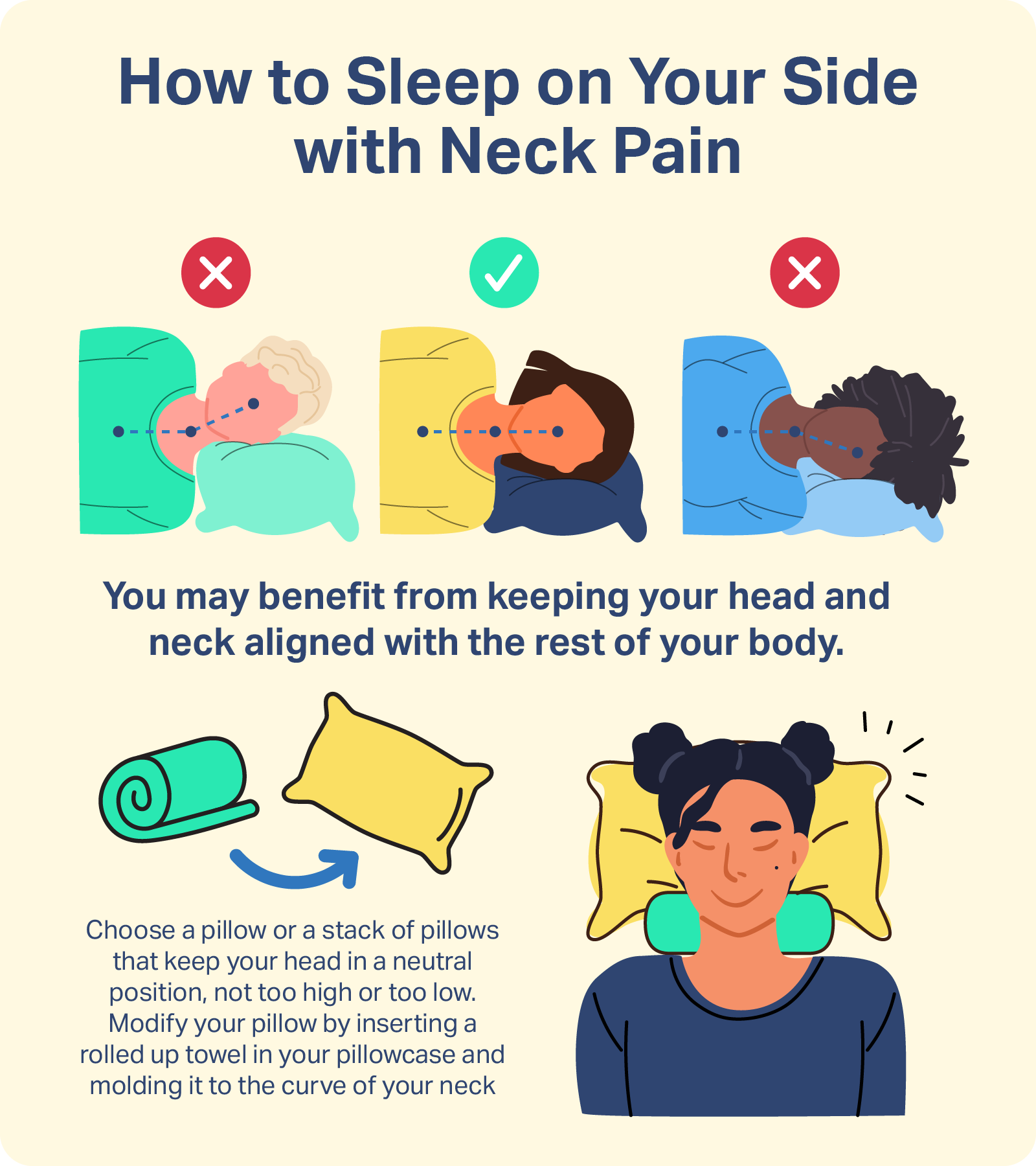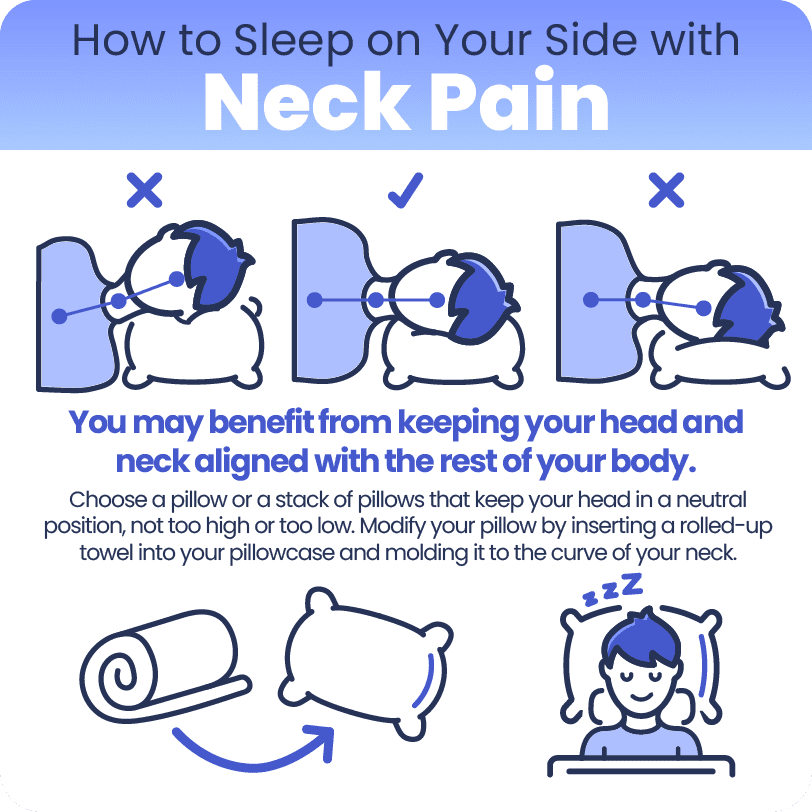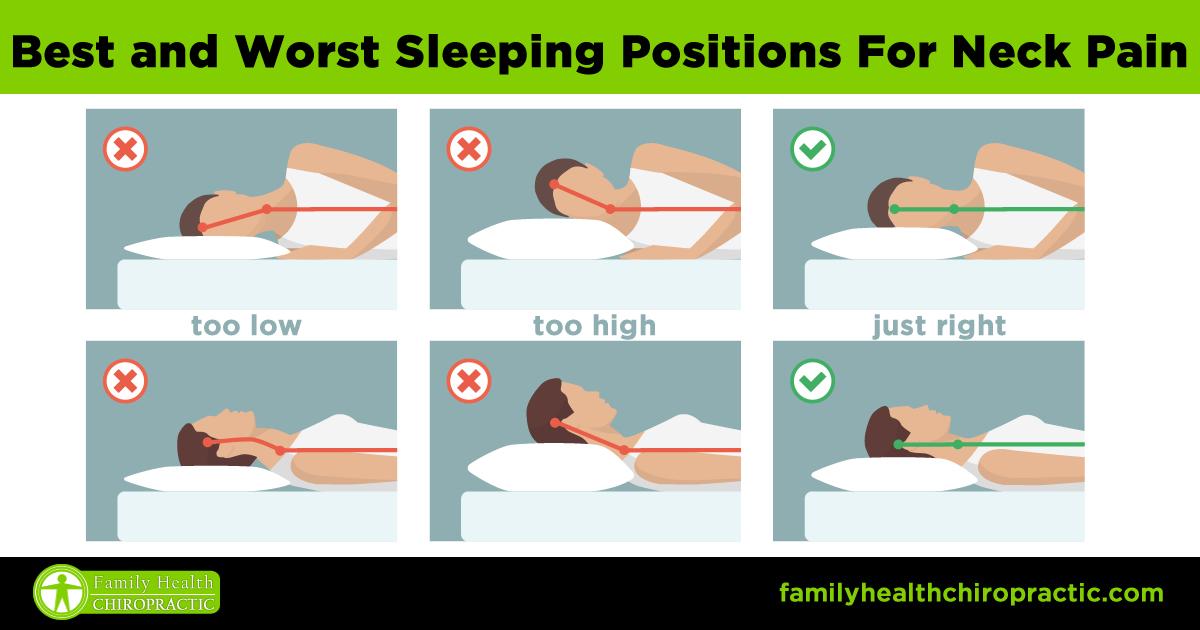Best Way To Sleep With Sore Neck

Waking up with a stiff, sore neck can derail your entire day. The persistent ache, limited range of motion, and radiating pain can impact everything from your focus at work to your ability to enjoy simple activities. Finding a comfortable sleeping position is crucial, but often elusive when your neck is already screaming in protest.
This article delves into the optimal sleep strategies for those suffering from neck pain. It provides evidence-based guidance on pillow selection, sleeping positions, pre-bedtime routines, and when to seek professional medical advice. Our goal is to provide actionable information for improved sleep and reduced neck pain.
Understanding Neck Pain and Sleep
Neck pain can stem from various sources. These sources include poor posture, muscle strain, arthritis, or even sleeping in an awkward position. Identifying the root cause is important for choosing the best approach to manage the discomfort.
Sleeping exacerbates neck pain through prolonged static positioning. This can place undue stress on the cervical spine. The result is inflamed muscles and restricted joint movement.
The Importance of Pillow Selection
Your pillow plays a critical role in maintaining proper spinal alignment during sleep. The ideal pillow should support the natural curve of your neck. It should allow your head to rest level with your spine.
Memory foam pillows are a popular choice due to their ability to conform to the shape of your head and neck. This provides customized support and reduces pressure points. Consider a contoured memory foam pillow for optimal neck support.
Cervical pillows, specifically designed for neck support, feature a raised portion that cradles the neck. This helps maintain proper alignment and reduce strain. Side sleepers need a thicker pillow than back sleepers.
Avoid using too many pillows, as this can force your neck into an unnatural position. This can further aggravate pain. Down or feather pillows may lack sufficient support for those with neck issues.
Optimal Sleeping Positions
Your sleeping position greatly influences the stress placed on your neck. Certain positions are more conducive to neck pain relief than others. Making small adjustments can have a significant impact.
Sleeping on Your Back
Sleeping on your back is often considered the best position for neck pain. It allows your spine to maintain its natural alignment. Place a thin pillow under your knees to further reduce strain on your lower back.
A small, rolled towel placed under your neck can provide additional support. This helps to maintain the cervical curve. Ensure that the pillow supporting your head is not too thick. This would push your chin towards your chest.
Sleeping on Your Side
Sleeping on your side can be acceptable if you maintain proper alignment. Choose a pillow that fills the space between your ear and shoulder. This will prevent your head from tilting downwards.
Keep your spine straight. Avoid curling up into a fetal position. Consider placing a pillow between your knees to align your hips and lower back.
Positions to Avoid
Sleeping on your stomach is generally discouraged for those with neck pain. It forces you to turn your head to one side for extended periods. This places significant strain on your neck muscles and joints.
If you are a stomach sleeper, try to gradually transition to sleeping on your back or side. Use pillows to support your body in the desired position. Over time, this will become more comfortable.
Pre-Bedtime Routine for Neck Pain Relief
Establishing a calming pre-bedtime routine can further alleviate neck pain. This will promote better sleep quality. Gentle stretches, heat therapy, and relaxation techniques can all contribute to relief.
Try performing gentle neck stretches before bed. Slowly rotate your head from side to side and gently tilt your ear towards your shoulder. Stop if you feel any pain.
Applying a warm compress or taking a warm shower can help relax neck muscles. This reduces stiffness and pain. Engage in relaxation techniques such as deep breathing or meditation.
Avoid looking at screens (phones, tablets, or computers) before bed. The blue light emitted from these devices can interfere with sleep. It can also worsen neck pain due to poor posture.
When to Seek Professional Help
While these tips can provide relief for mild neck pain, it's crucial to seek professional medical advice. This is especially important if your pain is severe, persistent, or accompanied by other symptoms.
Consult a doctor or physical therapist if you experience numbness, tingling, or weakness in your arms or hands. These symptoms could indicate nerve compression or other underlying conditions.
A physical therapist can assess your posture, range of motion, and muscle strength. They can develop a personalized treatment plan to address your specific needs.
Ignoring chronic neck pain can lead to long-term complications. Early intervention is key to preventing further damage and improving your quality of life.
The Long View
Managing neck pain requires a multifaceted approach. This includes proper sleep hygiene, appropriate pillow selection, and attention to sleeping posture. A mindful pre-bedtime routine can also be quite helpful.
By incorporating these strategies into your daily life, you can significantly reduce neck pain. And you can improve your sleep quality. This will ultimately lead to a more comfortable and productive life.
Continued research into sleep and pain management is ongoing. Future advancements may offer even more effective solutions for those struggling with neck pain. Staying informed and proactive is essential for managing this common condition.


















